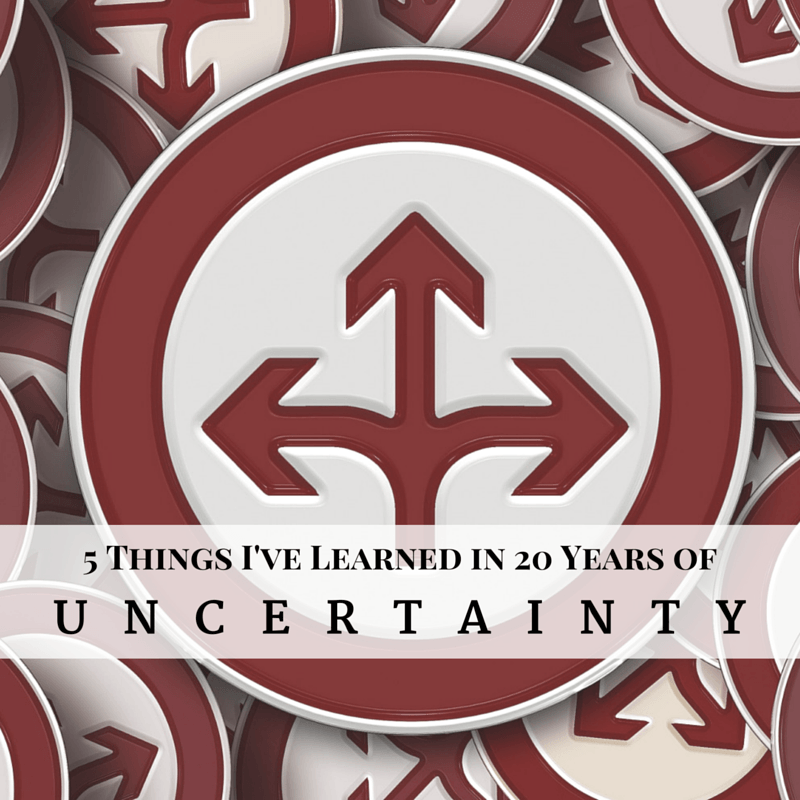
Over the summer, I marked the anniversary of “the beginning” – as I like to think of it. The beginning of my career, which started as a teenager when I took a job at Marine Corps Base Camp Pendleton. The uncertainty of that day, and what lay ahead, has been repeated time and again over the last 20 years.
With every change is a new beginning, and two decades later, I find myself on the verge of another one following months of wondering what my next role would be.
Organizations restructure. They need to, at times, to adjust to changing market conditions, take advantage of new opportunities, or address misalignments in their current structure. While there are benefits with restructuring – change creates opportunity and can shake things up – it also creates uncertainty for those caught up in it.
In the course of many years of reorganizations, restructures and realignments, I have been laid off and promoted, kept in my role and traded to another. I’ve helped lead the transformation and I’ve been just another impacted resource. Over the years, I have learned a few lessons to help me get to the other side, ready to deliver in some new capacity. Lessons I thought I’d share – knowing there are many caught up the same uncertainty that only ended for me a few days ago.
Make sure people know what you want
No matter what your role in the organization, you have an opportunity to shape your own future. If no one knows that you want to be considered for a leadership position, or the last thing you would want is to manage people, then how can your interests be considered? They can’t. You may not get what you want even if you communicate it, but you surely won’t if you no one knows.
Know what you can live with
Going into a restructuring can be stressful, and the first thought might be “as long as I have a job, I’ll be okay.” While that may be true, knowing up front what you can and can’t live with provides a sense of owning your own outcomes, no matter what may be decided on your behalf. If you are part of a couple, have a discussion up front about whether you can afford to hold out for the kind of work you really want, or if you want to take what’s given and then affect change from a position of strength (i.e. employment and a steady paycheck). It’s a personal decision every person/couple must make based on their priorities and financial situation. Who knows? By having an open discussion about the possibilities, one of you may decide to be a stay at home parent or pursue a home-business dream.
Accept that there will be things you cannot control
During change, do your best to keep your head and your sanity. At some point, you will be on the other side of the decision-making and announcements. No matter what the outcome, you’ll know where you are and at that point, you can move forward. Whether you have a job, or the job you want, you can take action. Until then, you can drive yourself crazy with “what ifs” and speculation. Affect what you can, accept that there are things you can’t, and do your best to keep your head straight until all the facts are known.
Relationships matter, but not without the ability to execute
Leaders look for individuals that can deliver when they are building out new organizations or transforming existing ones. Who do they look to? People they already know, or who are known quantities to trusted advisors. Don’t wait for the next realignment. Get out there. Make yourself and your skills known – genuinely. If you wait until you’re in a realignment to begin making those relationships, it’s too late. It’s also too late to turn on the jets. Perform every day like you could lose your job tomorrow. It decreases the likelihood you will.
Fellow Leaders – We must look out for our people
The previous suggestions apply to everyone. As leaders, we need to have another focus besides our own future. Our primary responsibility is to our people. If we don’t look out for them, who will? We are their best – and possibly only – voice at any table where decisions are being made. We must make sure those above us know our key players and advocate for them. Spreadsheets and data points are just facts. What we know about our team – the people – cannot be fully captured in data. We cannot wait until reorganization activities begin. Instead, we should ensure our leadership knows who we rely on for our results as they happen. While this isn’t about us individually, if we do our best by our teams, regret about what we didn’t do for them won’t follow us into our next role.
Change is one of the few guarantees in life and we all have our methods for working through it. What are your secrets to weathering the storm of organizational change?








